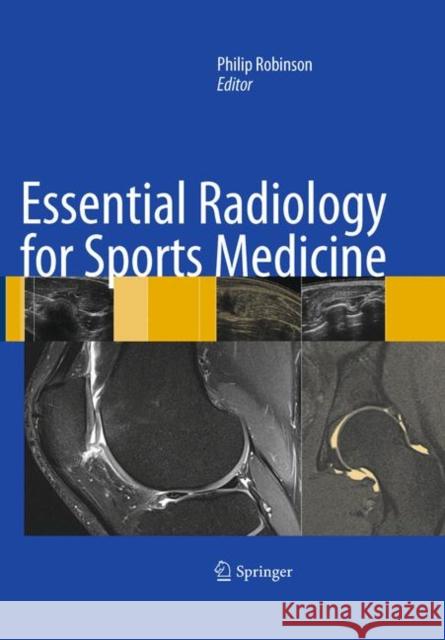Essential Radiology for Sports Medicine » książka
Essential Radiology for Sports Medicine
ISBN-13: 9781441959720 / Angielski / Twarda / 2010 / 256 str.
Imaging plays an increasingly vital role in the management of athletes aiding diagnosis, injury grading and prognosis, as well as guiding therapy. These processes apply equally to elite and recreational athletes young and old. I have always found that understanding the relevance of imaging fndings is easier when accompanied by knowledge of the anatomy, biomechanics and pathological processes involved in injury formation. This textbook has been developed with both radiologists and sports cli- cians in mind and aims to bring all these processes together and illustrate the spectrum of injury and associated clinical features for specifc anatomical areas. Internationally recognized musculoskeletal experts have contributed chapters which provide an imaging and clinical overview of the most relevant joint, bone and soft tissue athletic injuries. There is guidance for the reader on why specifc injuries occur, how to identify the optimal imaging evaluation and how to interpret the subsequent imaging fndings. Acute and overuse injuries are discussed as well as the premature degenerative processes that occur in athletes. State-of-the-art imaging techniques and fndings are presented including the use of muscu- skeletal ultrasound, conventional MR imaging and MR arthrography. Therapeutic ima- guided intervention using fuoroscopy, CT, and ultrasound is also discussed. This balance of techniques should allow a clinician whose practice focuses on one particular modality to become aware not only of that technique s abilities but other modalities and their capabilities and limitations. Leeds, UK Philip Robinson vii Contents 1 Knee Injuries . . . . . . . . . . . . . . . . . . . . . . . . . . . . . . . . . . . . . . . . . . . . . . . . . . . . . . . . . . . . . . . . . . . . . . . . . . . . . . . . . . . . . . . . . . . . . . . . . . . . . . . . . . . . 1 Melanie A. Hopper and Andrew J."











